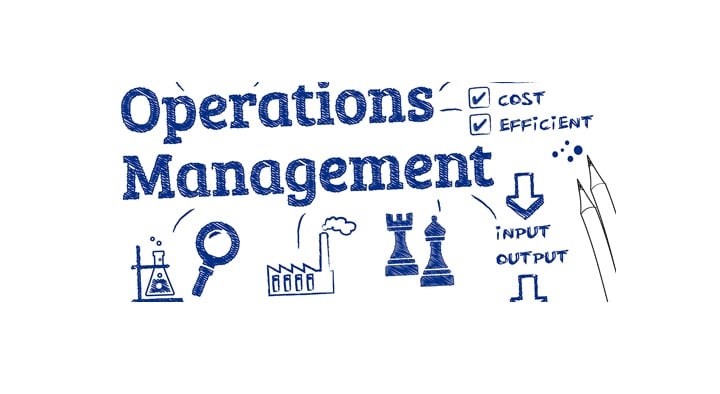
In the contemporary business landscape, the integration of AI in operations management is revolutionizing how organizations function. Artificial intelligence is not just a buzzword; it is a powerful tool that enhances efficiency, reduces costs, and fosters innovation across various operational processes. This article explores how AI transforms operations management and the benefits it brings to organizations.
Understanding AI in Operations Management
AI in operations management refers to the application of artificial intelligence technologies to optimize and streamline various business processes. This includes using machine learning, natural language processing, and data analytics to make informed decisions, automate tasks, and improve overall operational efficiency. By leveraging AI, organizations can gain valuable insights, enhance productivity, and adapt to changing market dynamics.
1. Enhancing Decision-Making
One of the most significant advantages of AI in operations management is its ability to improve decision-making processes. AI systems can analyze vast amounts of data quickly and accurately, providing insights that humans might overlook. This capability enables managers to make data-driven decisions, reducing the risk of errors and enhancing overall effectiveness.
Example:
For instance, AI algorithms can analyze sales data to identify trends, helping managers forecast demand more accurately. This leads to better inventory management and optimizes supply chain operations.
2. Automating Routine Tasks
AI can automate repetitive and mundane tasks, freeing employees to focus on higher-value activities. By implementing AI-driven tools, organizations can significantly reduce the time spent on manual processes, leading to increased productivity.
Example:
Chatbots powered by AI can handle customer inquiries, schedule appointments, and provide support 24/7. This automation not only improves customer service but also allows employees to concentrate on more complex issues.
3. Improving Operational Efficiency
AI technologies can optimize workflows and streamline processes within operations management. By analyzing data and identifying bottlenecks, AI can suggest improvements that enhance efficiency.
Example:
In manufacturing, AI can monitor production lines in real-time, identifying inefficiencies and suggesting adjustments to improve output. This proactive approach minimizes downtime and maximizes productivity.
4. Enhancing Supply Chain Management
AI plays a crucial role in optimizing supply chain management by providing real-time insights into inventory levels, demand forecasts, and supplier performance. This enables organizations to make informed decisions regarding procurement, logistics, and inventory management.
Example:
AI-powered analytics can predict demand fluctuations, allowing companies to adjust their inventory levels accordingly. This reduces excess stock and minimizes the costs associated with storage and waste.
5. Predictive Maintenance
One of the most impactful applications of AI in operations management is predictive maintenance. By analyzing data from machinery and equipment, AI can predict when maintenance is required, reducing unplanned downtime and extending the lifespan of assets.
Example:
Manufacturers can use AI to monitor equipment health, identifying potential issues before they lead to failures. This proactive approach not only saves costs but also enhances safety within the workplace.
6. Personalizing Customer Experiences
AI in operations management also extends to improving customer experiences. By analyzing customer data, organizations can tailor their offerings to meet individual preferences, leading to higher satisfaction and loyalty.
Example:
E-commerce platforms use AI algorithms to recommend products based on customers’ browsing history and preferences. This personalization enhances the shopping experience and drives sales.
7. Optimizing Resource Allocation
AI can help organizations optimize resource allocation by analyzing workloads, employee performance, and project requirements. This ensures that resources are allocated efficiently, maximizing productivity and minimizing waste.
Example:
Project management tools powered by AI can analyze team performance data to assign tasks based on individual strengths and availability. This leads to more effective teamwork and project completion.
8. Streamlining Financial Operations
AI technology can also transform financial operations within organizations. By automating processes such as invoicing, expense tracking, and financial reporting, AI reduces the time and effort required for financial management.
Example:
AI-driven financial software can automatically categorize expenses and generate reports, providing real-time insights into financial health. This allows finance teams to focus on strategic planning rather than manual data entry.
9. Enhancing Risk Management
AI can significantly improve risk management by analyzing historical data to identify potential risks and vulnerabilities. This proactive approach enables organizations to mitigate risks before they escalate into significant issues.
Example:
AI algorithms can analyze market trends and economic indicators, helping organizations anticipate potential disruptions in their operations. This foresight allows for better contingency planning and risk mitigation strategies.
10. Fostering Continuous Improvement
AI in operations management fosters a culture of continuous improvement by providing organizations with the tools to analyze performance data and implement changes based on insights. This iterative approach ensures that businesses remain agile and adaptable in the face of challenges.
Example:
Organizations can use AI analytics to conduct regular performance reviews, identifying areas for improvement and implementing changes to enhance efficiency and effectiveness.
Conclusion
The integration of AI in operations management is transforming how organizations operate, leading to enhanced efficiency, improved decision-making, and better customer experiences. By automating routine tasks, optimizing workflows, and providing valuable insights, AI empowers businesses to adapt to changing market dynamics and drive growth. As technology continues to evolve, organizations that embrace AI in their operations management will be well-positioned for long-term success.















